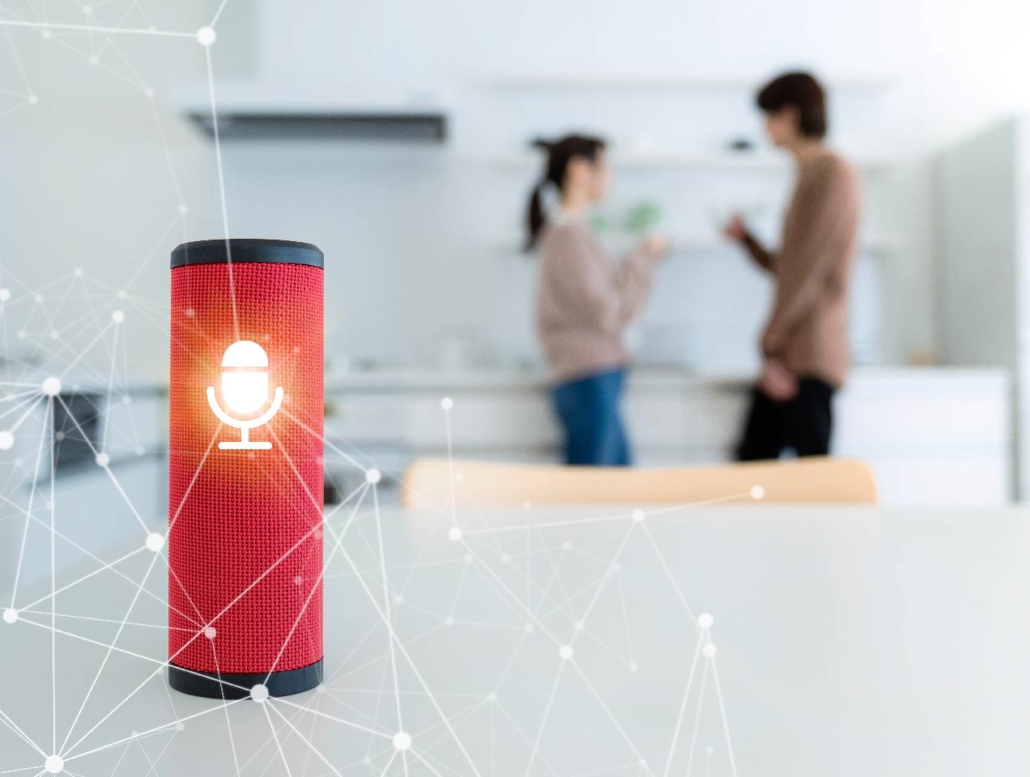“OK Google, send an email…” could soon be the default way you get in touch – if it’s not already.
Smart speakers like Google Home and Amazon Echo (better known to most people simply as Alexa) are changing the way we interact with our home electronics and especially with the internet.
And as voice recognition continues to become the mainstream option, some investors claim traditional alternatives like the keyboard will vanish completely in as little as five years.
Mark Tluszcz, co-founder and chief executive officer of Mangrove Capital Partners, told CNBC in a recent interview that voice recognition technology “is the opportunity of a decade”.
He added: “I’m an optimist. An optimist that’s been reasonably right many times.” Those times include the venture capitalist backing Skype when it was initially bought in 2005 by eBay, and the website builder platform Wix during its 2013 public offering.
Even so, it’s a brave prediction to say keyboards will be gone completely in just half a decade – and it hinges on whether voice technologies settle into being “a nice add-on” or instead represent a “cataclysmic change to the user experience”.
Mr Tluszcz told CNBC: “Our thesis at Mangrove is, it’s a massive change. There are going to be many companies built that are only voice… What’s clear to me today is that the keyboard, in five years, will be gone as an input device.”
An end to typing?
Realistically it’s unlikely that keyboards will be gone completely by 2025, but it’s quite possible that one of the oldest peripherals still in common usage will become just that – peripheral.
Meanwhile although the smart speaker space is already dominated by brands like Amazon and Google, Mr Tluszcz still believes there is room in the market for new start-ups, and has backed the French high-quality podcast entrant Sybel.
The significant factor is innovation and the ability for new firms to find new applications for intelligent voice recognition – and for the technology to become universal, for example by being able to recognise less commonplace voices and accents.
Only by catering to every user, no matter who or where they are, will voice technology achieve the 100% market penetration potential it will need if it is to render keyboards truly obsolete as a mode of input.
Where will the growth come from?
A report from Juniper Research in February 2019 forecasted the technologies and geographies that are set to see the fastest growth in the voice assistant segment in the next five years.
They predicted:
- Over 120% compound annual growth rate in smart TVs.
- Over 40% CAGR in smart speakers like Amazon Echo and Google Home.
- Over 40% CAGR in voice-activated wearable technology.
However, the largest platform will remain smartphone voice assistants like Siri, OK Google and Cortana, which is already a highly matured application for voice interactivity.
In terms of location, the report predicted that Chinese companies will make major international inroads in the coming years, which potentially makes Chinese voice tech stocks a two-birds, one-stone option for those looking to invest both in the country and in voice technology.
A major driving force behind Chinese growth in this sector is the need for multi-platform voice assistants, which is expected to take over from the current trend for standalone apps developed by independent vendors.
By 2022, Juniper Research expect to see revenues from such smartphone and tablet apps start to decline in key markets, but China represents an exception to this.
According to Juniper’s report: “Companies like WeChat and Alibaba provide app-based offerings alongside speakers that are not part of an operating system. This means that China will have 78% of voice assistant apps installed globally in the next 5 years.”
Finally, the analysis noted that voice technology has applications across the full range of ecommerce, from physical goods to digital transactions.
Because of this, by 2023 voice commerce is expected to be worth some $80 billion a year worldwide, including traditional purchases, spending on digital and virtual goods, and its use on money-related services like fund transfers.
Who knows – in as little as five years time, investing could be a case of saying “OK Google, buy shares in…”
Disclaimer: The information provided here is not investment, tax or financial advice. You should consult with a licensed professional for advice concerning your specific situation.




